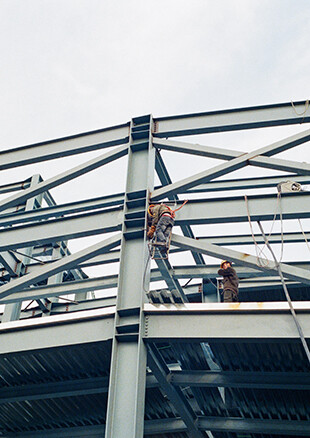 Many Americans rely on disability benefits to support their day-to-day life. California alone has roughly 673,000 people who receive Social Security Disability Insurance, also known as SSDI. SSDI and other benefits can be significantly impacted by many factors, which can make it a long and confusing process if you are also affected by a Worker’s Compensation claim. In this blog, we will outline what you need to know about the worker’s compensation process and social security and how you can more easily navigate the system with the help of the social security and worker’s compensation attorneys at Eason & Tambornini.
Many Americans rely on disability benefits to support their day-to-day life. California alone has roughly 673,000 people who receive Social Security Disability Insurance, also known as SSDI. SSDI and other benefits can be significantly impacted by many factors, which can make it a long and confusing process if you are also affected by a Worker’s Compensation claim. In this blog, we will outline what you need to know about the worker’s compensation process and social security and how you can more easily navigate the system with the help of the social security and worker’s compensation attorneys at Eason & Tambornini.
What is Social Security?
According to the Social Security Administration, a 20-year-old employee has a one-in-four chance of developing a disability before retiring. This means that roughly a quarter of our country’s workforce may be affected by a disability and need to access benefits like SSDI. Most workers that qualify for SSDI cannot work due to a medical condition that will last at least one year or a terminal illness. Some programs benefit those with partial or short-term disabilities as well. In some circumstances, the family members of the disabled worker can receive benefits from the Social Security Administration. There are many options to apply for disability benefits, including:
- Online application
- Calling the Social Security Administration
- Filing a claim with your local Social Security Office
Because of the complicated nature of social security and disability benefits, many people hire an attorney to assist them with filing a claim and maintaining their benefits.
What is Worker’s Compensation?
Worker’s Compensation varies from other benefits primarily because a government program does not pay its benefits; rather, they are primarily paid by private insurance companies and self-insured employers. To qualify for worker’s compensation, an employee must be directly injured on the job or as a result of their employment. These injuries may vary from minor to fatal. Some of the most common worker’s compensation claims are:
- Muscle strains or sprains
- Lacerations or punctures
- Brain Injuries and concussions
- Injuries resulting from falls
Worker’s Compensation benefits are paid based on your injury. They claim that SSDI benefits are paid based on other factors, including how long you were employed length and the severity of the injury, and will not always be based on how you became injured.
How Will Worker’s Compensation Benefits Affect My Current Disability Benefits?
Disability payments from private pensions and long-term disability policies generally will not affect SSDI benefits. However, Worker’s Compensation and other public disability benefits can influence or reduce your SSDI benefits. According to the Social Security Administration, the total amount of worker’s compensation benefits, and other general disability benefits, combined with your SSDI benefits, cannot exceed more than 80% of your average earnings before becoming disabled. If your benefits exceed 80% of your prior earnings, the excess amount may be deducted from your Social Security benefits.
Thousands of Californians rely on Social Security benefits and may have questions about maintaining them and how other benefits may affect their disability benefits. Those that have received disability payments may be concerned about their Worker’s compensation and other public benefits involving their Social Security benefits. Social Security and Worker’s Compensation are complicated, and many people contact attorneys for assistance with these programs. The highly qualified workers’ compensation attorneys at Eason & Tambornini are prepared to answer your questions at no cost.

